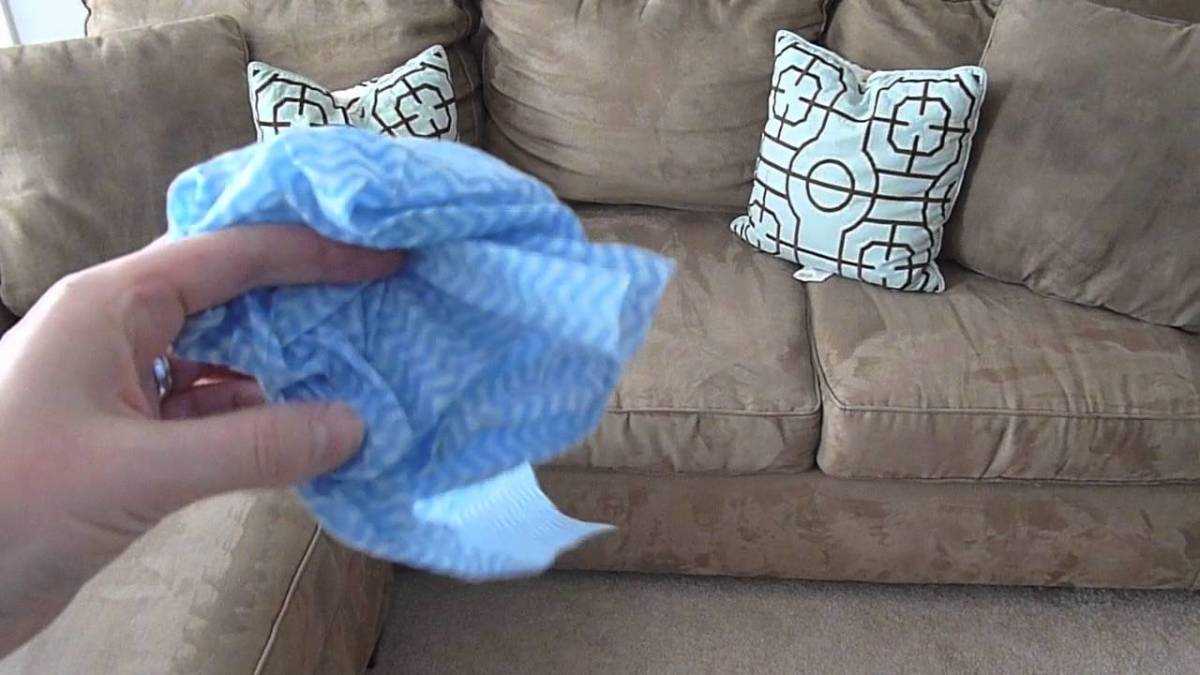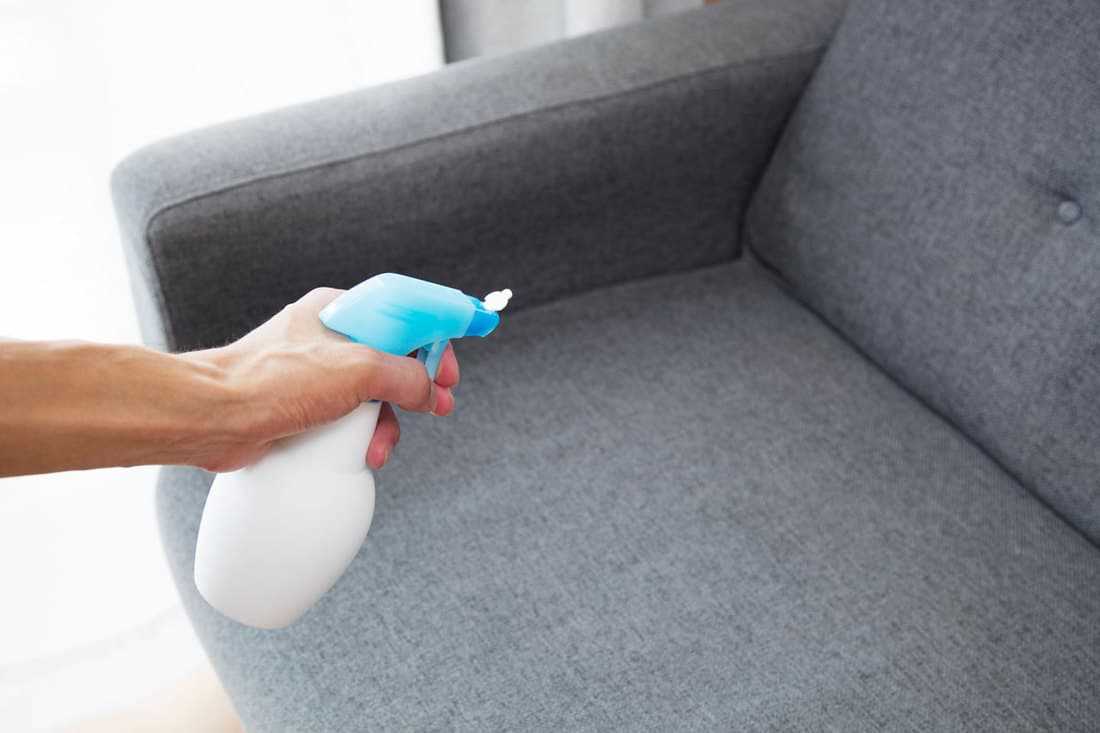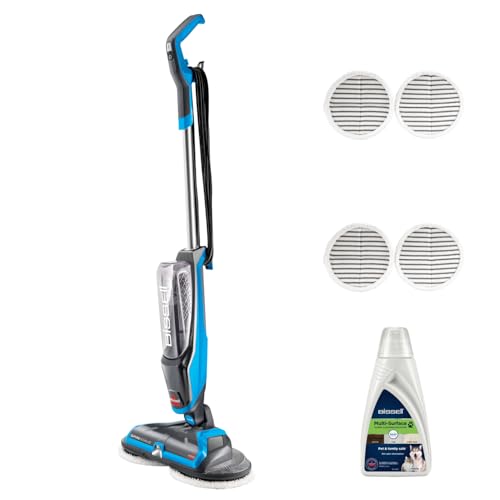




Having a clean and fresh-smelling sofa can make a big difference in the overall comfort and appearance of your living space. However, it can be frustrating when you clean your sofa and it still has an unpleasant odor. There are several common reasons why your sofa may still smell bad after cleaning, but luckily, there are also simple solutions to fix it.
One possible reason for a smelly sofa after cleaning is improper drying. If you don’t allow your sofa to fully dry after cleaning, it can create a damp environment that promotes the growth of mold and mildew. These fungi can produce unpleasant odors and may even cause health problems. To fix this issue, make sure to thoroughly dry your sofa after cleaning, either by using a fan, opening windows, or using a dehumidifier.
Another common reason for a lingering smell on your sofa is trapped pet dander and odors. Even if you regularly clean and groom your pets, their fur can still get embedded in the fabric of your sofa, and their odors can become trapped as well. To solve this problem, consider using a pet-specific fabric freshener or spritzing a mixture of water and vinegar onto the affected areas. Remember to spot test any cleaning solution before applying it to the entire sofa.
In some cases, a smelly sofa after cleaning may be due to spills or stains that were not completely removed. Leftover residue from beverages, food, or other substances can cause an unpleasant odor to develop over time. To eliminate these smells, try using a specialized stain remover designed for your sofa’s fabric type. Gently blot the area to remove any excess moisture and follow the instructions on the cleaning product.
It’s important to note that if the smell persists or if you’re unsure of how to properly clean your sofa, it’s best to seek professional help. A professional cleaning service can assess the situation and provide the appropriate treatment to ensure your sofa is clean and odor-free.
In conclusion, there are several common reasons why your sofa may still smell after cleaning, but with proper drying, addressing pet-related odors and dander, and thoroughly removing stains and spills, you can enjoy a fresh and pleasant-smelling sofa in your home.
Common Causes of a Sofa Smelling Bad After Cleaning and How to Resolve the Issue
1. Remaining Moisture
One common cause of a smelly sofa after cleaning is the presence of remaining moisture. If the sofa is not properly dried after cleaning, it can create a damp environment that promotes the growth of mold and mildew, resulting in a musty smell.
To resolve this issue, make sure to thoroughly dry the sofa after cleaning. Use clean towels to absorb any excess moisture and place fans near the sofa to facilitate the drying process. Opening windows or using a dehumidifier can also help remove excess moisture from the room.
2. Inadequate Cleaning of Spills and Stains

If spills or stains on the sofa were not adequately cleaned during the cleaning process, they can contribute to a bad smell. Organic matter, such as food or pet stains, can decompose and emit unpleasant odors if not properly treated.
To resolve this issue, thoroughly clean any spills or stains on the sofa. Use appropriate cleaning solutions or upholstery cleaners and follow the manufacturer’s instructions. Be sure to thoroughly rinse the area and allow it to dry completely to prevent any remaining residue from causing a foul smell.
3. Pet Odors
If you have pets, their lingering odor can also contribute to a smelly sofa even after cleaning. Pets may leave behind dander, hair, or other odorous substances that can get trapped in the upholstery fabric.
To resolve this issue, regularly vacuum your sofa to remove any pet hair or dander. Consider using a pet-specific upholstery cleaner or applying baking soda to absorb odors. Let the baking soda sit for a few hours before vacuuming it off.
4. Poor Air Circulation
Inadequate air circulation can trap odors in the sofa, making it smell bad even after cleaning. If the room where the sofa is located lacks proper ventilation, the odor may linger.
To resolve this issue, ensure that the room has proper ventilation. Open windows or use fans to promote air circulation. Consider using air purifiers to help eliminate any lingering odors in the room.
5. Dirty or Worn Out Upholstery
If the upholstery fabric is dirty or worn out, it may hold onto odors even after cleaning. Over time, dirt, dust, and other contaminants can accumulate in the fabric, causing a persistent smell.
To resolve this issue, consider deep cleaning or professional upholstery cleaning to remove deep-seated odors and dirt. If the upholstery is severely damaged or worn out, it may be necessary to replace it to eliminate the smell completely.
Conclusion
A smelly sofa after cleaning can be frustrating, but identifying the root cause can help you resolve the issue. Whether it’s due to remaining moisture, inadequate cleaning of spills and stains, pet odors, poor air circulation, or dirty upholstery, taking the appropriate steps to address the problem can help ensure a clean and fresh-smelling sofa.
Remember to always follow the manufacturer’s instructions when cleaning your sofa, and if necessary, consult a professional for assistance.
Residue from Cleaning Products

One common reason for a smelly sofa after cleaning is the residue left behind by cleaning products. While these products are designed to remove dirt and stains, they can sometimes leave behind a residue that can contribute to odors. This residue can build up over time and become trapped in the fibers of the sofa, leading to a persistent smell.
There are a few things you can do to fix this issue:
- Thoroughly rinse the sofa: After using cleaning products on your sofa, it is important to thoroughly rinse the area to remove any residue. This can be done by using a clean, damp cloth to wipe down the surface, or by using a spray bottle filled with water to mist the area and then blotting it dry.
- Use a gentle soap: If you find that cleaning products are leaving behind a residue, try switching to a gentle soap specifically designed for upholstery. These soaps are often formulated to leave behind minimal residue and can help to prevent future odor buildup on your sofa.
- Avoid over-saturating the fabric: When cleaning your sofa, it is important to avoid over-saturating the fabric. Excessive moisture can lead to mold and mildew growth, which can cause unpleasant odors. Instead, lightly dampen a cloth or sponge with cleaning solution and gently blot the stained area.
- Test cleaning products before use: Before applying any cleaning product to your sofa, it is best to test it in a small, inconspicuous area first. This will help you determine if the product will cause any unwanted residue or damage to your upholstery.
By taking these steps, you can help to prevent residue buildup and maintain a fresh-smelling sofa after cleaning.
Moisture Trapped in the Sofa
One common reason for a smelly sofa after cleaning is moisture being trapped in the sofa. This can happen when the sofa is not properly dried after cleaning or if excessive moisture is used during the cleaning process. Moisture trapped in the sofa can lead to the growth of mold and mildew, which can cause unpleasant odors.
Causes of Moisture Trapped in the Sofa
- Inadequate drying: If the sofa is not dried thoroughly after cleaning, moisture can become trapped inside, creating a breeding ground for mold and mildew.
- Excessive use of water or cleaning solution: Using too much water or cleaning solution during the cleaning process can result in excess moisture getting absorbed into the sofa fabric, making it difficult to dry completely.
- Humid environment: If the room where the sofa is located has high humidity levels, the excess moisture in the air can seep into the sofa and contribute to the problem.
How to Fix Moisture Trapped in the Sofa
- First, remove the sofa cushions and any removable covers, if possible, to allow for better air circulation.
- Use a fan or open windows to increase air circulation around the sofa. This will help in drying out the moisture trapped inside.
- If the weather permits, you can also take the sofa outside to dry in the sun. The sunlight will help in drying out the moisture and kill any mold or mildew spores.
- Consider using a dehumidifier in the room to reduce the humidity levels and prevent further moisture buildup in the sofa.
- If the smell persists, you may need to consult a professional upholstery cleaner who can properly clean and dry the sofa to eliminate the trapped moisture and odors.
Note: It is important to address the issue of moisture trapped in the sofa as soon as possible to prevent further damage and the spread of unpleasant odors.
Bacteria and Mold Growth
One common reason for a smelly sofa after cleaning is the growth of bacteria and mold. If your sofa was not properly dried after cleaning or if it was exposed to a damp environment, these microorganisms can thrive and cause unpleasant odors.
Bacteria
- Bacteria can easily accumulate on a damp sofa and produce foul smells.
- Some common types of bacteria that can cause odor include Staphylococcus and Escherichia coli.
- These bacteria can multiply rapidly, especially in warm and humid conditions.
Mold
- Mold can also grow on a damp sofa, especially if it is made of organic materials like fabric.
- Exposure to moisture or water can provide an ideal breeding ground for mold growth.
- Once mold starts to grow, it releases spores into the air, which can cause respiratory problems and contribute to the unpleasant smell.
How to Fix It
To eliminate bacteria and mold growth and remove the odor from your sofa, follow these steps:
- Thoroughly dry your sofa after cleaning. Use a fan or open windows to increase air circulation and speed up the drying process.
- If the odor persists, you can use a fabric-safe disinfectant spray to kill bacteria and mold. Follow the instructions on the product label.
- For mold growth, consider hiring a professional cleaning service to deep clean and treat your sofa. They have specialized equipment and solutions to effectively remove mold and prevent its regrowth.
- Regularly clean and vacuum your sofa to prevent the buildup of dirt, oils, and moisture that can contribute to bacterial and mold growth.
By taking the necessary steps to address bacteria and mold growth, you can effectively eliminate the unpleasant odor from your sofa and ensure a clean and fresh-smelling living space.
Pet Urine Odor
Pet urine can leave a strong and unpleasant odor on your sofa if not properly cleaned. This can happen if your pet has an accident on the sofa or if they frequently use it as their sleeping spot. The urine can seep into the upholstery and linger, causing a persistent odor.
Causes of Pet Urine Odor
- Enzymes in pet urine: Pet urine contains enzymes that break down into ammonia as it dries, which creates a strong odor.
- Porous upholstery: If your sofa has porous upholstery, it can absorb the urine and hold onto the smell.
- Incomplete cleaning: If the urine is not thoroughly cleaned up, it can leave behind traces that continue to emit odor.
How to Get Rid of Pet Urine Odor
To eliminate pet urine odor from your sofa, follow these steps:
- Blot up the urine: Use paper towels or clean cloth to blot any excess urine as soon as possible. Avoid rubbing, as it can spread the urine and make the stain worse.
- Clean with a urine remover: Use a commercial urine remover specifically designed for upholstery. Follow the instructions on the product and thoroughly clean the affected area.
- Use baking soda: Sprinkle baking soda liberally over the affected area to help absorb any remaining odor. Leave it on for a few hours or overnight, then vacuum it up.
- Consider professional cleaning: If the odor persists, you may need to hire a professional upholstery cleaner who can deep clean and deodorize your sofa.
Preventing Pet Urine Odor

To prevent pet urine odor from recurring, take these preventative measures:
- Train your pet: Properly train your pet to use an appropriate designated area for toileting.
- Use protective covers: Consider using protective covers on your sofa to prevent urine from seeping into the upholstery.
- Clean accidents immediately: If your pet has an accident on the sofa, clean it up as soon as possible to prevent the urine from soaking in.
- Regularly clean and deodorize: Regularly clean and deodorize your sofa to remove any lingering smells and prevent odor buildup.
By following these steps and being proactive in preventing pet accidents, you can keep your sofa smelling fresh and clean, even in the presence of pets.
Improper Drying Techniques
- Not allowing enough time for the sofa to fully air dry can lead to a lingering smell. Even if the surface appears dry, there may still be moisture trapped in the cushions or fabric.
- To avoid this, make sure to thoroughly dry your sofa after cleaning. Use a fan or open windows to promote air circulation in the room. If possible, remove the cushions and prop them up to allow air to circulate around them.
- You can also use a dehumidifier to help expedite the drying process.
Additionally, avoid using excessive heat to dry your sofa, as it can cause shrinkage or warping of the fabric. This includes placing it near a heater, using a hairdryer, or applying direct sunlight for extended periods.
If you live in a humid area, it may take longer for your sofa to dry. Be patient and ensure that it is completely dry before using it again.
FAQ
Why does my sofa smell bad after cleaning?
There are a few common reasons why your sofa may smell bad after cleaning. One reason could be that the cleaning solution used was not fully rinsed out and has left a residue that is causing the smell. Another reason could be that the sofa was not dried properly after cleaning, leading to a damp environment where bacteria and mildew can thrive. It is also possible that the cleaning process has not effectively removed all of the dirt, stains, and odor-causing agents from the sofa.
How can I get rid of the smell on my sofa after cleaning?
There are several steps you can take to get rid of the smell on your sofa after cleaning. First, make sure to thoroughly rinse and dry the sofa to remove any residue and prevent a damp environment. You can also try using a fabric refresher or odor neutralizer specifically designed for upholstery. If the smell persists, you may need to repeat the cleaning process or consider professional cleaning services. Additionally, it is important to regularly vacuum and maintain your sofa to prevent smells from building up in the future.
What are some home remedies to remove odor from a sofa?
There are a few home remedies that you can try to remove odor from your sofa. One option is to sprinkle baking soda over the surface of the sofa and let it sit for a few hours to absorb the odor. Then, vacuum the baking soda off the sofa. Another option is to mix equal parts of water and vinegar in a spray bottle and lightly mist the sofa. Vinegar is a natural deodorizer and can help eliminate odors. You can also try placing bowls of activated charcoal or coffee grounds around the sofa to absorb odors.
Is it possible to prevent a smelly sofa after cleaning?
Yes, it is possible to prevent a smelly sofa after cleaning by following a few steps. Firstly, make sure to properly rinse and dry the sofa to remove any cleaning solution residue and prevent a damp environment. It is also important to use a cleaning solution specifically designed for upholstery and follow the manufacturer’s instructions. Regular maintenance, such as vacuuming and spot cleaning, can help prevent dirt, stains, and odor-causing agents from building up on the sofa. Additionally, using a fabric refresher or odor neutralizer on a regular basis can help keep your sofa smelling fresh.
Should I hire a professional cleaner to remove the smell from my sofa?
If you have tried various methods to remove the smell from your sofa and have not been successful, it may be worth considering hiring a professional cleaner. Professional cleaners have specialized equipment and expertise to effectively deep clean upholstery and remove tough odors. They can also assess the specific situation and recommend the best course of action for your sofa. Keep in mind that professional cleaning services may come at an additional cost, but they can provide a thorough and long-lasting solution to your smelly sofa problem.














